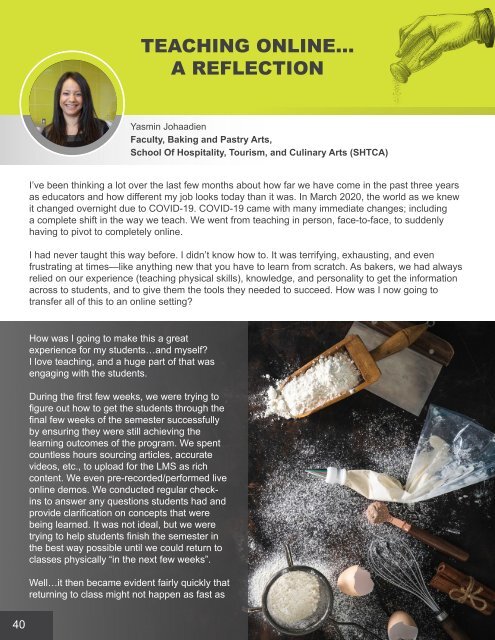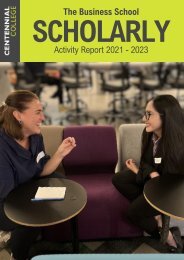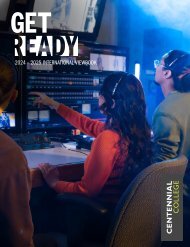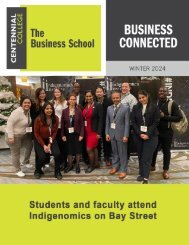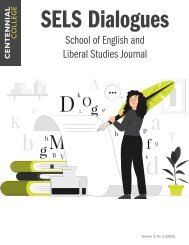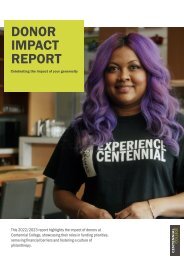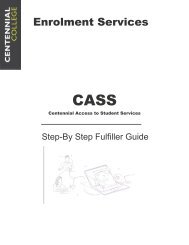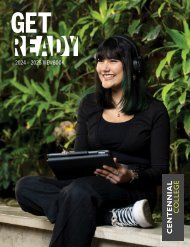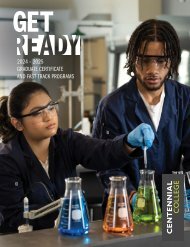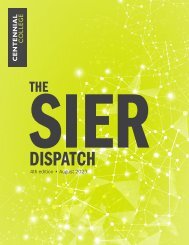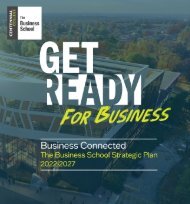The Teaching and Learning Innovation Digest - May 2023
Welcome to a truly special edition of the Teaching and Learning Innovation Digest! Our seventh annual academic publication has assumed an incredibly meaningful shape and form for a number of reasons. Not only did we receive an enthusiastic response with over 30 submissions via our institutional broadcast, but we also have consciously and intentionally embraced the principles of Universal Design for Learning by attempting to represent and celebrate the varied forms of expressions therein. From reflective essays, poetry, visual and performing arts, podcasts, video conversations to scholarly work, academic and applied research, news and updates, and interviews, this is truly a power-packed publication!
Welcome to a truly special edition of the Teaching and Learning Innovation Digest! Our seventh annual academic publication has assumed an incredibly meaningful shape and form for a number of reasons. Not only did we receive an enthusiastic response with over 30 submissions via our institutional broadcast, but we also have consciously and intentionally embraced the principles of Universal Design for Learning by attempting to represent and celebrate the varied forms of expressions therein. From reflective essays, poetry, visual and performing arts, podcasts, video conversations to scholarly work, academic and applied research, news and updates, and interviews, this is truly a power-packed publication!
You also want an ePaper? Increase the reach of your titles
YUMPU automatically turns print PDFs into web optimized ePapers that Google loves.
TEACHING ONLINE...<br />
A REFLECTION<br />
Yasmin Johaadien<br />
Faculty, Baking <strong>and</strong> Pastry Arts,<br />
School Of Hospitality, Tourism, <strong>and</strong> Culinary Arts (SHTCA)<br />
I’ve been thinking a lot over the last few months about how far we have come in the past three years<br />
as educators <strong>and</strong> how different my job looks today than it was. In March 2020, the world as we knew<br />
it changed overnight due to COVID-19. COVID-19 came with many immediate changes; including<br />
a complete shift in the way we teach. We went from teaching in person, face-to-face, to suddenly<br />
having to pivot to completely online.<br />
I had never taught this way before. I didn’t know how to. It was terrifying, exhausting, <strong>and</strong> even<br />
frustrating at times—like anything new that you have to learn from scratch. As bakers, we had always<br />
relied on our experience (teaching physical skills), knowledge, <strong>and</strong> personality to get the information<br />
across to students, <strong>and</strong> to give them the tools they needed to succeed. How was I now going to<br />
transfer all of this to an online setting?<br />
How was I going to make this a great<br />
experience for my students…<strong>and</strong> myself?<br />
I love teaching, <strong>and</strong> a huge part of that was<br />
engaging with the students.<br />
During the first few weeks, we were trying to<br />
figure out how to get the students through the<br />
final few weeks of the semester successfully<br />
by ensuring they were still achieving the<br />
learning outcomes of the program. We spent<br />
countless hours sourcing articles, accurate<br />
videos, etc., to upload for the LMS as rich<br />
content. We even pre-recorded/performed live<br />
online demos. We conducted regular checkins<br />
to answer any questions students had <strong>and</strong><br />
provide clarification on concepts that were<br />
being learned. It was not ideal, but we were<br />
trying to help students finish the semester in<br />
the best way possible until we could return to<br />
classes physically “in the next few weeks”.<br />
Well…it then became evident fairly quickly that<br />
returning to class might not happen as fast as<br />
we thought <strong>and</strong> we would have to continue<br />
teaching online. Courses had to be developed<br />
to be fully online, cooking <strong>and</strong> baking demo<br />
videos had to be created. Everyone worked<br />
incredibly hard to make this happen, all the<br />
while managing life at home with family <strong>and</strong>/<br />
or kids—who were being homeschooled at the<br />
same time—<strong>and</strong> dealing with the repercussions<br />
of COVID. This was quite the experience.<br />
Once online courses were developed, we<br />
had to learn to teach the material in this new<br />
setting. Could I make online teaching work?<br />
Could I make it fun? I had to try. This was also<br />
an opportunity for me to learn how to teach<br />
in a new way, <strong>and</strong> regardless of whether I<br />
was teaching in-person or online, the goals<br />
remained the same—to provide students with<br />
the best learning experience, <strong>and</strong> all the tools<br />
necessary to be successful.<br />
It took some time, but I got to a point where<br />
I started to feel more comfortable teaching<br />
online. In the first semester, I was mainly<br />
focused on ensuring students achieved the<br />
learning outcomes. <strong>The</strong> following semester,<br />
I spent more time exploring <strong>and</strong> learning<br />
available tools on our LMS, something I still<br />
continue to do, to make the course(s) more<br />
user friendly <strong>and</strong> engaging online. I then shifted<br />
my focus to the online sessions I held for the<br />
students every week on ZOOM. This was<br />
the only “real” time I got to spend with<br />
them. I wanted to make these sessions<br />
valuable, so I asked myself, what were some of<br />
the things I did in person that worked really well<br />
that would transfer well online?<br />
I made a “chef’s” list to implement:<br />
• Be animated when speaking<br />
• Show excitement <strong>and</strong> passion for topics<br />
being discussed<br />
• Learn every student’s name <strong>and</strong> greet<br />
them as they entered the online session<br />
• Show ingredients that might be new<br />
to them but are commonplace in<br />
the industry<br />
• Introduce alternative ingredients that<br />
can be used to prepare the recipes of<br />
the week<br />
• Share universal examples to explain<br />
difficult concepts like comparing “dough<br />
conditioner” to “hair conditioner”<br />
• Share videos/pictures of alternative or<br />
innovative ways chefs are producing<br />
items we are learning about<br />
I also started offering alternative options<br />
for assessments, keeping in mind UDL<br />
opportunities for varied learners. Instead of<br />
students submitting a quiz or written evaluation,<br />
40<br />
41


